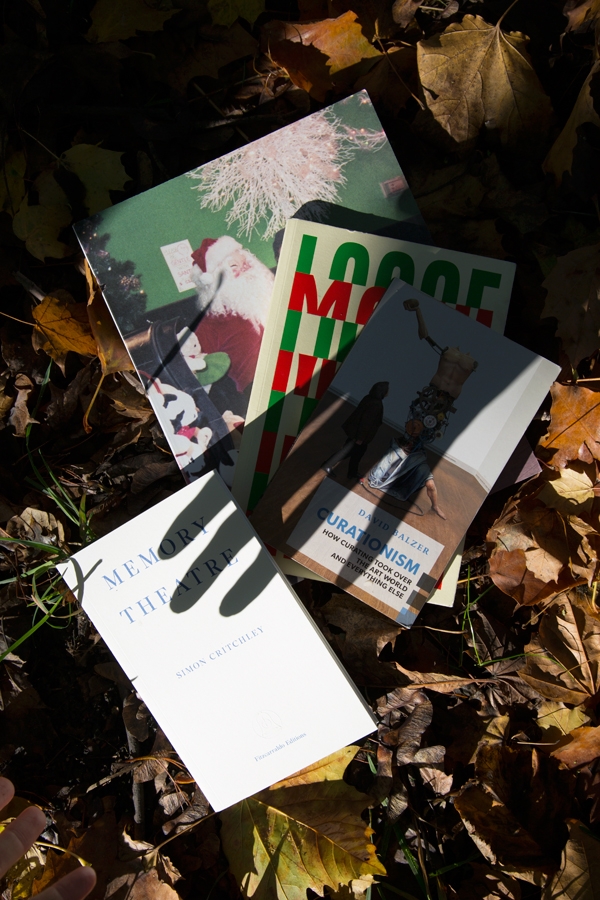‘All I remembered from that morning in the pharmaceutical factory was Jilted John on the radio – “Gordon is a moron” – and blood all over the floor.’ In 1978, when Simon Critchley was eighteen, he almost lost a hand in a workplace accident. Instead he lost swathes of memory: most of his childhood was sliced away, bits of it later reattached via family snapshots and anecdotes tirelessly rehearsed. He has ever since had a sense of the waywardness of recall, the labour and skill required to corral the skittish past, tether it in place. Hence, he says, his abiding interest in classical mnemotechnics and an obsession with Frances Yates’s 1966 book The Art of Memory, in which the scholar describes the fullest elaboration of that hermetic tradition: the fantastical memory theatres of the Renaissance. In the most audacious of these, says Critchley, a total encyclopaedic memory was imagined, ‘the unity of the human and the divine’.
All of the above is true, and so is a good deal else in Memory Theatre, a novella of sorts with aspects of memoir, essay and outright absurdist invention. The narrator is a version of Critchley: a middle-aged English philosopher living in New York a decade ago and enjoying a period of unaccustomed mainstream success. Maybe unwarranted too: he thinks his latest book, on the deaths of famous philosophers, is ‘funny, full of impressively wide reading, and utterly shallow’. His agent recommends he write a book about happiness: ‘Thoughts without a thinker. Cool.’ Returning to England to clear out his old office, Critchley finds a cache of documents that belonged to a colleague, now deceased. Michel Haar – he’s real too – was author of books on Hegel and Nietzsche; he died in France in the vicious heatwave of 2003. In the skewed universe of Memory Theatre, it turns out he was also an astrologer and has predicted Critchley’s death, on 13 June 2010, in Den Bosch. ‘But where the fuck was Den Bosch?’
At times Memory Theatre reads like the sort of semifictional jeux d’esprit that academics are sometimes seduced into when they’re otherwise written out or have begun to fantasise about real literary work and its rewards
At times Memory Theatre reads like the sort of semifictional jeux d’esprit that academics are sometimes seduced into when they’re otherwise written out or have begun to fantasise about real literary work and its rewards. The book’s plot is pure Umberto Eco, but radically foreshortened and rendered bathetic rather than symbolically overdetermined. There are hints too – more than hints – of the premise and structure of Tom McCarthy’s Remainder (2005). (Critchley and McCarthy are cofounders of the International Necronautical Society.) The fictional Critchley quits his post and moves to the Netherlands, where at ruinous expense he begins to build an actual memory theatre, based on sixteenthcentury designs by Giulio Camillo Delminio and furnished with reminders of Critchley’s own life and learning. At the moment of his death, he will have attained the total recall dreamed of by the Renaissance thinkers, and become ‘transfigured, radiant, perfectly self-sufficient’.
Over 60 or so pages, Critchley has a good deal of metaphysical fun with the history of the memory theatre and its apparent influence on Shakespeare and Hegel, among others. Readers of his On Humour (2002), The Book of Dead Philosophers (2009) or The Hamlet Doctrine (2013) will recognise the trademark Critchley swerve from philosophical abstraction to personal or pop-cultural reference point: ‘Repetition, repetition, repetition – I thought of Mark E. Smith of the mighty Fall’. The breeziness sometimes seems calculated to enrage academic colleagues of more austere and ingrown style; but Memory Theatre is also more than a mere diversion, or slightly fanciful lecture in intellectual history further tricked up as fiction. Critchley is actually at his best here when describing bodily rather than metaphysical predicaments: raging insomnia and its jagged aftermath; the grisly episode when he was eighteen; or the florid hallucinations of his declining narrator. At such moments the ghosting text is not Yates or Hegel or McCarthy but Freud’s protomodernist case study, Schreber: ‘I was the living switchboard of the universe. My skull was a magnetized globe.’
This article was first published in the December 2014 issue.
